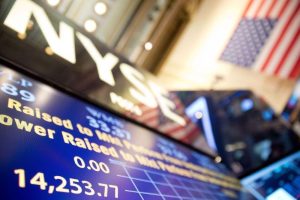Alătură-te comunității noastre!
Vezi cele mai recente știri & informații din piața de capital

Elon Musk is warming up to raising a big flag in India. Reuters reported on Wednesday, citing a source, that Tesla wants to manufacture and sell vehicles in the country. That could make sense if the $550 billion brand becomes a market maker, as it has in China.
Musk set his Navi on India years ago. In 2021, the company received approval to sell its flashy cars there. Import tariffs of up to 100% made it difficult to measure demand, so Tesla lobbied to lower tariffs rather than produce locally.
That was a tough sell, given Prime Minister Narendra Modi’s efforts to get multinationals to „Make in India.”
On the other hand, Apple offers an alternative roadmap. Last month, CEO Tim Cook opened the company’s first two stores in Mumbai and Delhi.
Apple’s friendly relationship with India has been fostered in the company’s factories. The company’s suppliers are ramping up domestic production, with iPhones accounting for more than half of the roughly $9 billion worth of smartphones exported from India in the 11 months through February.
Building a factory could also be worthwhile for Musk, although justifying a Tesla-sized plant would require fast and furious sales. China’s Shanghai plant has a capacity of 750,000 cars a year; 500,000 would likely be a feasible size for building a factory in India, research group Wedbush Securities says.
Neither India’s domestic market nor exports appear capable of doing so. Although total passenger car sales reached nearly 4 million in the year ending March 2023, less than 2% were electric vehicles, and those were mostly more affordable models like Tata Motors’ Nexon.
Exports of passenger cars, including vans and commercial vehicles, reached just 660,000 last year.
With outside help, however, the Indian market could shift up a gear. That prospect could persuade authorities to offer the company additional incentives.
When Tesla built a Gigafactory in China in 2019, the sheer size of the company meant supply chains emerged to serve it. Those same supply chains have supported domestic brands like Nio and Xpeng: According to Bernstein, electric cars now account for about a third of all car sales, up from about 5% four years ago.
Tesla’s scale has also made it more economical to export out of the country.
A factory wasn’t high on Musk’s original wish list for India, but an Indian plant could be worthwhile for both sides.









Vezi cele mai recente știri & informații din piața de capital